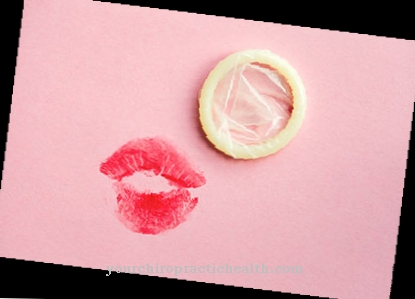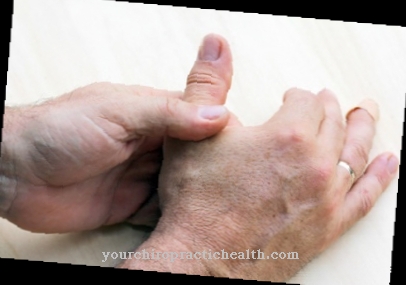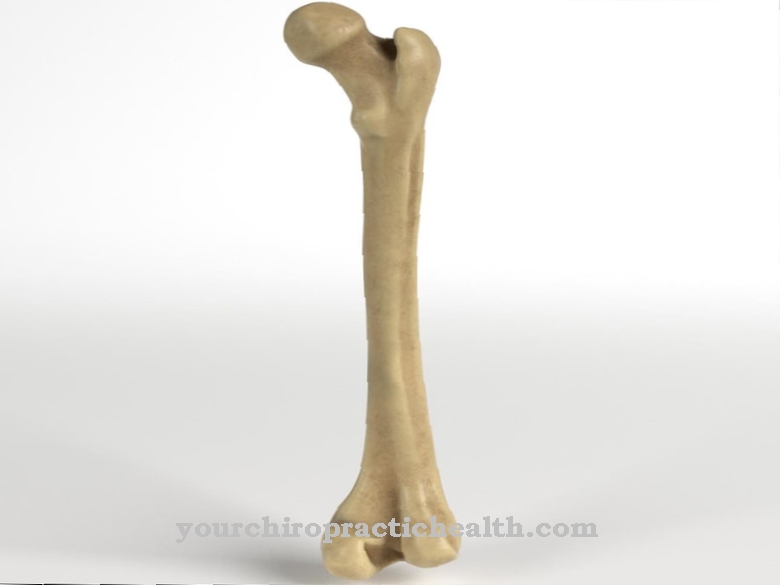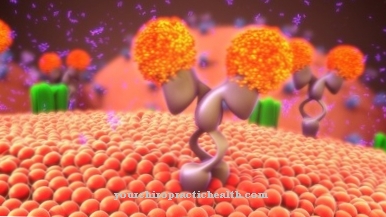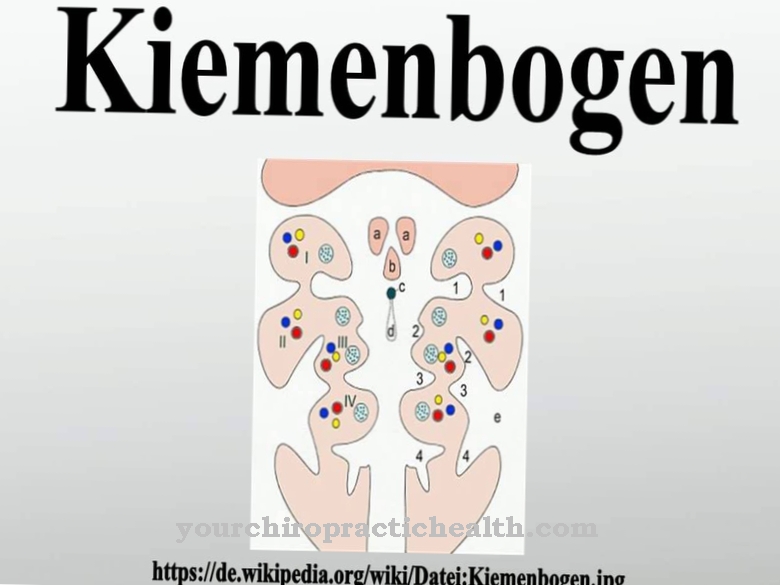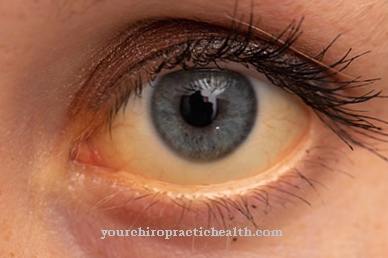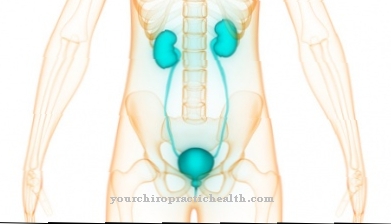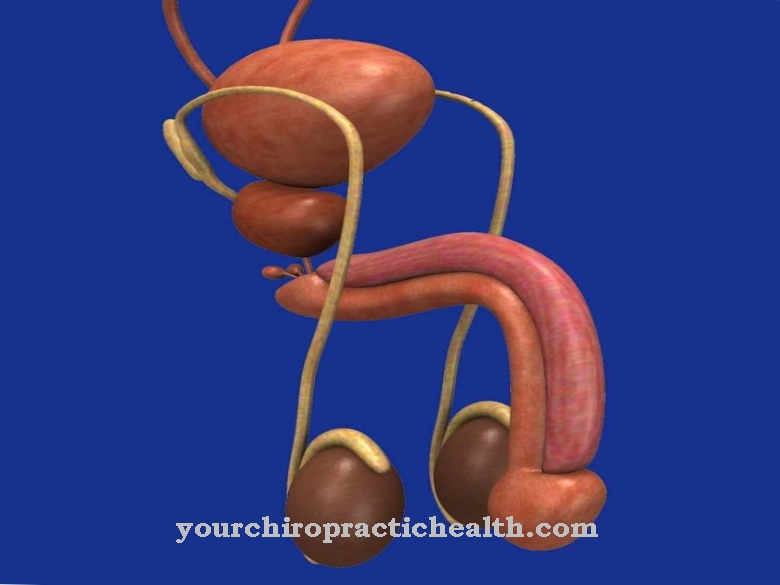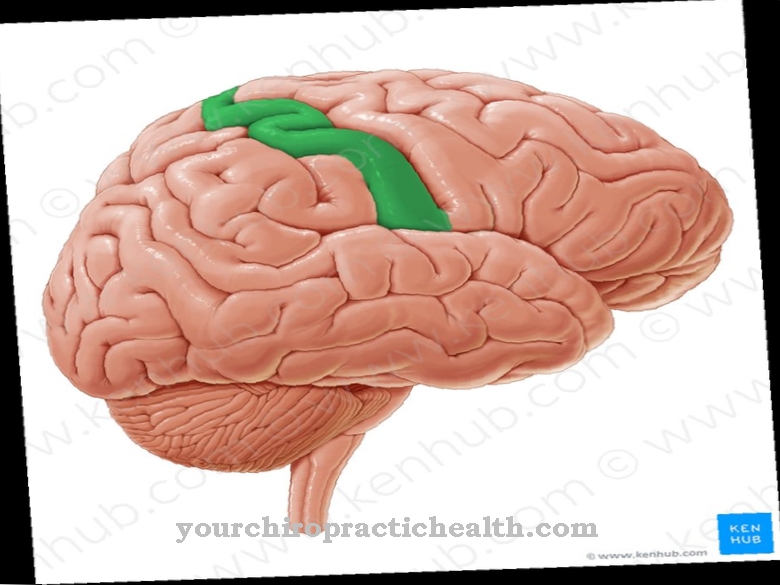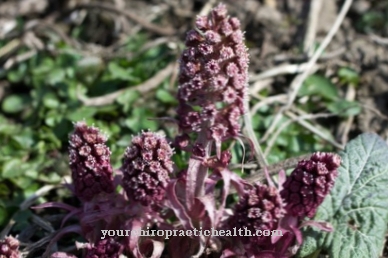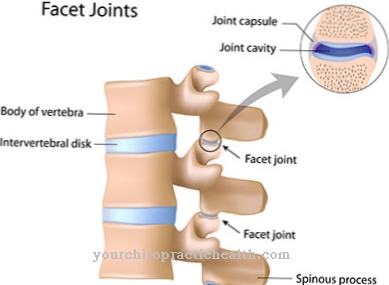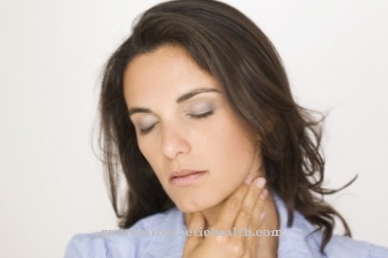Burning lips are a common symptom of various ailments. They are common and also develop into a chronic condition in some people. Burning lips usually have a harmless cause.
What are Burning Lips?

When talking about burning lips, what is usually meant is an unpleasant sensation of the lips, which mainly consists of pain. These often increase when the lips are tense or when speaking. They also tend to get worse when the lips are irritated, such as from cold or hot food. The pain can be pulling, itchy or otherwise painful.
In most cases, burning lips are also accompanied by reddening of the affected area. The corners of the mouth in particular are often severely affected by the pain, as they are particularly susceptible to further injuries and strain.
Burning lips are mainly possible because the skin of the lips - compared to other skin - is very unprotected. It only has sebum glands and therefore cannot retain a film of fat. In light skin types, too, it has no or few pigment cells and generally no sweat glands, which makes it more permeable.
The sensitivity is supplemented by a large number of nerve endings and blood vessels, so that the lips are rightly considered a very sensitive organ. The sensitivity and the lack of resistance of the lips are reinforced by the fact that the skin layer is only about five cells thick - in contrast to the otherwise usual 16 cells. Lips are accordingly thin-skinned in the truest sense of the word.
Burning lips are often seen as an indicator of a harsh environment or a lack of a certain substance. Mostly they find their origin in a suboptimal care of the lips or through external influences. Burning lips occur more frequently, especially in winter, and are usually not a serious symptom. Mostly they are a temporary phenomenon, but can also be present as a chronic symptom. If burning lips are a permanent problem, they are a serious problem for those affected.
causes
The causes of burning lips are very different. Basically, a distinction can be made here between physical causes, nutrient deficiency as the cause and diseases as the cause.
The physical causes include, for example, dry air and cold. Both of these make the lips rough and can roughen them. Small cracks develop and begin to burn. Very warm and dry air, smoke, dust and other air pollution also have a similar effect.
Frequent breathing through the mouth - for example as a result of a stuffy nose or snoring - can also be the cause of burning lips. Basically, any dry breeze through the mouth also increases the dryness of the lips. Usually these are moistened by the person himself - with the tongue. This can also be omitted for any reason.
Other physical causes include injuries - such as bites or scratches on the lip - and dehydration as a result of consuming alcoholic beverages. The latter occurs especially when consuming spirits.
Deficiency symptoms also often lead to burning lips. Most often, it is entire body dehydration that leads to this. The lips are affected particularly quickly here because they have no protective film whatsoever and hardly have the ability to moisturize themselves. A large part of the moistening of the lips is achieved through the saliva and the mucous membranes in the corners of the mouth, which is difficult in the case of dehydration.
Other deficiency symptoms that can lead to burning and reddened lips include, for example, iron deficiency and a lack of vitamins.
There are also many diseases that directly or indirectly lead to burning lips. This includes, for example, all skin diseases insofar as they affect the lips, such as neurodermatitis, skin fungi, eczema and so on. Cold sores are often responsible for burning lips. A few other diseases can also lead to burning lips due to their metabolic effects. For example, diabetes or AIDS can lead to dry and burning lips.
Allergies can cause burning lips. This happens either because of the contact allergy or because of a general allergic reaction. The closer the allergen gets to the lips, the more likely it is that burning lips become a symptom of an allergic reaction.
Diseases with this symptom
- Iron deficiency
- Dehydration
- Cold sore
- Contact allergy
- Insect venom allergy
- Aphthous ulcers
Complications
The complications are classified as rare. Burning lips themselves have almost no risk of complications if their cause is a lack of hydration or a bad climate. Basically, temporarily chapped and burning lips should be dismissed as harmless if they are better cared for and protected.
However, the increased vulnerability of burning lips always means a certain risk of subsequent infections or deeper tears in the skin. Sometimes small wounds develop. If this is deepened by pulling off dry skin or by unconscious bites, it can lead to unpleasant bleeding.
Bacterial pathogens and fungi in particular also lodge in long open wounds and cracks on the lips. Serious infections can develop and spread to the mouth or face. Involvement of the corners of the mouth (torn corners of the mouth) additionally increases this risk. Under certain circumstances - based on torn and burning lips - the symptoms of torn and rotting corners of the mouth can occur.
Chronically burning and dry lips are also a bigger risk factor than occasional burning lips. The other complications of burning lips depend on possible underlying diseases.
When should you go to the doctor?
Burning lips, insofar as they occur acutely, are not a reason to consult a doctor. If the lips are cared for and kept away from dry air and so on, the affected person can usually allow them to heal.
On the other hand, if the burning lips are inexplicable and cause long pain, a doctor should be consulted. The first step can lead the person concerned to the family doctor. Further examinations may be carried out by a dermatologist.
The same applies in the event that inflammation, open wounds, discoloration or other abnormalities appear on the lips. So everything that goes beyond a temporary reddening and slight pain should, ideally, be clarified by a doctor.
Doctors & therapists in your area
diagnosis
The diagnosis of burning lips is made through observation and anamnesis. In this context, an attempt is made to determine the causes of dry lips. In addition, in some cases it may be necessary to take swabs of any pathogens that may be present.
If the causes cannot be identified directly (and general treatment does not work), a more intensive physical examination will follow. This is mostly the case when illness or malnutrition is suspected to be the cause of the burning lips. Anamnesis and, if necessary, a blood test can also help here.
Treatment & Therapy
The treatment of burning lips is cause-oriented, i.e. the aim is to treat an underlying disease. If this is not possible, or if the burning lips have physical causes, they are treated in the traditional way. If necessary, the wound is disinfected and the wound is treated. The other treatment in most cases consists of drinking sufficient quantities of fluids and using moisturizing ointments or creams. If necessary, wound healing creams are to be used.
Outlook & forecast
The prognosis for burning lips can be described as very good. This always applies if the causes are temporary and no complications have occurred. No consequential damage is to be expected, but the time it takes for the lips to heal varies. However, burning lips can always occur because the causes are so diverse.
Since the most common cause of burning lips is dry lips, healing can be expected within three days with proper care and sufficient drinking. If it is very dry and cold, this can take longer.
The prognosis for chronically burning lips can be different. If the lip tissue is badly damaged, it can sometimes take weeks for it to heal. This depends on the behavior of the person concerned, on their diet and on the weather. In principle, almost all cases of burning lips can be treated well.
prevention
There are a number of ways to prevent dry lips. Above all, this includes drinking enough and paying attention to possible injuries. Itchy lips should never encourage scratching. Lip bites are also to be avoided.
Especially in winter, the drying out of the rooms by heating air should be avoided. A humidifier or occasional ventilation - despite the cold - get a more lip-friendly room climate.
Various care products that are in circulation for lips should only be used sparingly. Although the lips of some people need artificial lubrication, this should never be applied thickly and only if you actually feel dry. Natural fats - such as milking fat or olive oil - are preferable to perfumed and chemically processed care products.
Overall, it is advisable to keep your sensitive lips away from anything irritating, i.e. from cold and warm food and drinks, from spicy food and so on. The eating behavior does not have to be changed for this. Instead, it is sufficient to bring food past the lips into the mouth.
The compulsive use of petroleum jelly to prevent chapped and burning lips is not advisable: the effect of long-term use is rather the opposite. In addition, kissing strengthens the immune system and is therefore also suspected of strengthening the lips.
You can do that yourself
Those who suffer from burning lips have a wide range of options to help themselves. Honey and mixtures of sugar and olive oil have proven themselves as home remedies. Both calm the lips, protect them and retain moisture. Healing processes can be accelerated in this way.
Sufficient drinking amounts support the healing process. For pain from the lips, numbing lozenges (similar to those used for a sore throat) can also be used. However, no attempt should be made to numb the pain on the lips directly, as most of the recommended remedies are irritating. Instead, it is important to ensure that the lips have as little contact as possible with objects or food. Licking with the tongue should also be avoided.

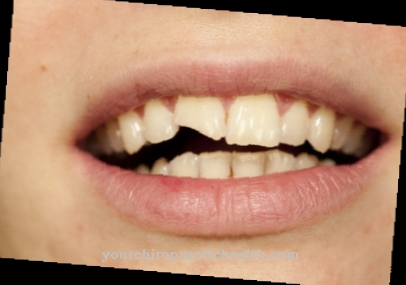
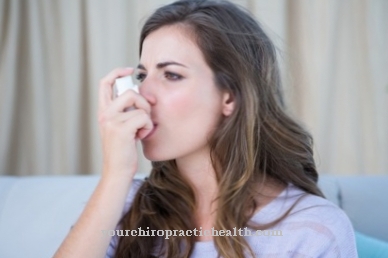
.jpg)

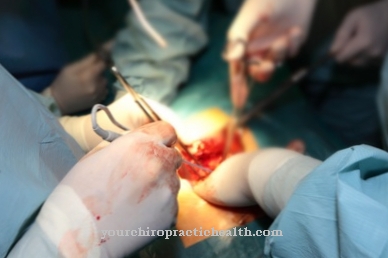


.jpg)
